
Journal of Neurorestoratology
Scope & Guideline
Connecting minds: where neuroscience meets rehabilitation.
Introduction
Aims and Scopes
- Neurorestoration Techniques:
The journal emphasizes various neurorestorative techniques, including cell therapy, deep brain stimulation, and rehabilitation methodologies that aim to repair and regenerate nervous tissue. - Neurorehabilitation Strategies:
A core focus is on developing and evaluating rehabilitation strategies for neurological disorders, including stroke recovery, spinal cord injuries, and other neurodegenerative diseases. - Mechanisms of Neuroplasticity:
Research on the underlying mechanisms of neuroplasticity is a significant area, exploring how the brain reorganizes itself functionally and structurally in response to injury or disease. - Translational Research:
The journal encourages translational research that bridges laboratory findings with clinical applications, aiming to implement new therapies and technologies in patient care. - Emerging Technologies in Neurorestoration:
The incorporation of innovative technologies, such as brain-computer interfaces and virtual reality, in neurorestorative practices is a unique contribution of the journal.
Trending and Emerging
- Neuroinflammation and Immune Response:
There is a growing interest in understanding the role of neuroinflammation and the immune response in neurological disorders, highlighting the potential for therapeutic targets in managing these conditions. - Role of Non-coding RNAs:
Research on long non-coding RNAs and their influence on neurological diseases is gaining traction, suggesting new avenues for understanding mechanisms of disease and potential therapeutic interventions. - Integration of Technology in Rehabilitation:
The application of technologies such as virtual reality and brain-computer interfaces in neurorehabilitation is trending, reflecting a shift towards more interactive and engaging rehabilitation strategies. - Personalized Medicine Approaches:
An emerging theme is the emphasis on personalized medicine in neurorestoration, tailoring treatment plans based on individual patient profiles and genetic backgrounds. - Holistic and Multidisciplinary Approaches:
There is an increasing trend towards holistic and multidisciplinary approaches in neurorestoration, incorporating mental health, physical rehabilitation, and lifestyle modifications to enhance recovery outcomes.
Declining or Waning
- Traditional Rehabilitation Methods:
There has been a noticeable decline in studies focusing solely on traditional rehabilitation methods, as newer, more innovative approaches are being prioritized in the current research landscape. - Basic Animal Studies:
Research centered on basic animal studies without direct translational implications appears to be decreasing, as emphasis shifts towards studies with clear pathways to clinical application. - Pharmacological Approaches:
The focus on pharmacological treatments for neurorestoration is waning, possibly due to the increasing interest in non-invasive and integrative therapies that focus on promoting neuroplasticity.
Similar Journals
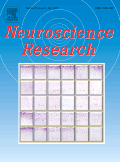
NEUROSCIENCE RESEARCH
Pioneering Research in Neural MechanismsNEUROSCIENCE RESEARCH, published by Elsevier Ireland Ltd, is a leading journal in the field of neuroscience, with a notable reputation for disseminating high-quality research that spans a variety of topics within the discipline. With an ISSN of 0168-0102 and an E-ISSN of 1872-8111, this journal serves as a vital platform for both established researchers and emerging voices in the field. Ranking in the Q2 quartile in both Medicine and Neuroscience categories, it has been recognized as a reliable source of innovative findings since its inception in 1984, with continuous publication through 2024. Although it does not currently offer Open Access options, the journal is indexed in Scopus, holding a significant position at Rank #48/113 in General Neuroscience, reflecting its contribution to advancing the understanding of neural mechanisms across various contexts. With its address anchored in Ireland, NEUROSCIENCE RESEARCH plays an essential role in bridging scientific inquiry and practical applications, making it an indispensable resource for researchers, professionals, and students dedicated to the burgeoning field of neuroscience.

Zeitschrift fur Neuropsychologie
Fostering Innovative Insights in Cognitive NeuroscienceZeitschrift für Neuropsychologie, published by HOGREFE AG in Switzerland, stands as a vital resource for scholars and practitioners in the fields of neuropsychology, cognitive neuroscience, and psychiatry. With an ISSN of 1016-264X and E-ISSN 1664-2902, this journal aims to disseminate high-quality research that enhances understanding of cognitive processes and their implications for mental health. While currently classified in the fourth quartile across relevant categories, including Cognitive Neuroscience and Neuropsychology, it offers valuable insights that contribute to the emerging discourse in these areas. By publishing both empirical studies and theoretical papers, it encourages interdisciplinary dialogues among researchers and clinicians. Although the journal is not Open Access, its role in advancing neuropsychological research is significant, fostering academic linkages from its base in Bern, Switzerland. By continually focusing on the latest advancements and fostering innovative approaches within the field, Zeitschrift für Neuropsychologie remains a crucial platform for those committed to exploring the complexities of the human mind.

Brain and Spine
Connecting minds: Bridging the gap between brain function and spinal health.Brain and Spine is a premier academic journal published by ELSEVIER, dedicated to advancing the fields of neuroscience and neurology. With its unique focus on the complex interactions between brain function and spinal health, this journal serves as an essential resource for researchers, clinicians, and students alike. Though currently lacking an official impact factor, its ranking within Scopus highlights its relevance, placing it in the 25th percentile for neuroscience (miscellaneous) and the 23rd percentile within neurology, indicating that while it is a developing journal, it holds potential for significant contributions to the field. Operating under open-access principles, it aims to disseminate valuable findings widely, ensuring that novel insights into neurological health are accessible to a global audience. Brain and Spine seeks to foster interdisciplinary collaboration and innovation, making it an invaluable platform for those striving to enhance our understanding of the brain and spinal cord's intricate functions and interdependencies.

Translational Neuroscience
Exploring Innovative Frontiers in Neurological Research.Translational Neuroscience, published by DE GRUYTER POLAND SP Z O O, is a leading open-access journal since its inception in 2015, dedicated to the multidisciplinary exploration of neurological research and its clinical applications. With an ISSN of 2081-3856 and an E-ISSN of 2081-6936, the journal serves as a crucial platform for scholars and practitioners to disseminate innovative findings and theoretical advancements in the field of neuroscience. Covering various aspects of general neuroscience, it is ranked in the Q3 quartile for 2023 and positioned at Rank #75 out of 113 in its category, reflecting its growing impact within the scientific community. The journal strives to bridge the gap between laboratory research and clinical practice, fostering collaboration among researchers, clinicians, and educators. The editorial team is committed to maintaining high publication standards that engage the audience with rigorous research while promoting a culture of open science. For those interested in the forefront of neuroscience research, Translational Neuroscience offers an invaluable resource for knowledge and innovation.
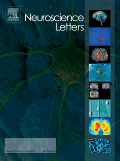
NEUROSCIENCE LETTERS
Advancing Insights into Nervous System Complexities.NEUROSCIENCE LETTERS is a distinguished journal published by ELSEVIER IRELAND LTD, focusing on disseminating impactful research across the field of neuroscience. With its ISSN 0304-3940 and E-ISSN 1872-7972, the journal serves as a vital platform for researchers, professionals, and students aiming to explore the complexities of nervous system function and related disorders. Since its inception in 1975, NEUROSCIENCE LETTERS has contributed significantly to the field, currently positioned in the Q3 category for Miscellaneous Neuroscience, with a respectable Scopus rank of 52/113, placing it in the 54th percentile among its peers. The journal is published in Ireland and offers a comprehensive repository of scientific insights, methodologies, and innovative findings that advance our understanding of neurological phenomena. While not an open-access journal, it remains an essential resource for the latest advances in neuroscience research and the academic community’s collective knowledge.
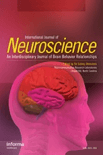
INTERNATIONAL JOURNAL OF NEUROSCIENCE
Empowering Discovery in the Realm of NeuroscienceThe INTERNATIONAL JOURNAL OF NEUROSCIENCE, published by TAYLOR & FRANCIS LTD, stands as a vital resource in the field of neuroscience since its inception. With a proud history of publication from 1970 to 2024, this journal is committed to advancing knowledge in various domains of neuroscience, from fundamental research to clinical applications. It is indexed with an ISSN of 0020-7454 and an E-ISSN of 1563-5279, reflecting its wide reach and recognition. The journal maintains a respectable position in the academic landscape, categorized as Q2 in Medicine (miscellaneous) and Q3 in Neuroscience (miscellaneous) as of 2023, signifying its relevance among researchers and professionals. Although it currently does not offer open access, the journal remains a significant platform for disseminating groundbreaking research, thereby fostering collaboration and innovation within the neuroscience community. Located in the United Kingdom, the journal aims to bridge gaps in neuroscience knowledge, making it an essential reading for students, professionals, and researchers dedicated to unraveling the complexities of the nervous system.

Frontiers in Human Neuroscience
Connecting Minds: Where Neuroscience Meets Behavioral ScienceFrontiers in Human Neuroscience is a premier open access journal published by FRONTIERS MEDIA SA, dedicated to advancing the understanding of the complexities of human neuroscience. With an ISSN of 1662-5161, the journal has established its prominence in various fields, achieving a Q2 ranking in categories such as Behavioral Neuroscience, Neuropsychology and Physiological Psychology, and Psychiatry and Mental Health as of 2023. Since its inception in 2008, Frontiers in Human Neuroscience has consistently contributed to the scholarly dialogue by offering a platform for innovative research that bridges the gap between neuroscience and behavioral science. The journal's rigorous peer-review process and commitment to open access ensures that findings are readily available, promoting collaboration and progress within the academic community. With an impact on neuroscience disciplines, it stands at the forefront of the field, inviting researchers, professionals, and students alike to engage with cutting-edge studies and developments. The journal's address is located in Lausanne, Switzerland, where it continues to flourish as a hub for neurobiological exploration.
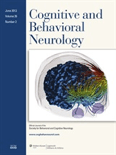
Cognitive and Behavioral Neurology
Transforming Understanding in Cognitive NeuroscienceCognitive and Behavioral Neurology is a prominent peer-reviewed journal dedicated to advancing the understanding of cognitive and behavioral aspects of neurological disorders. Published by Lippincott Williams & Wilkins, this journal has established itself as a vital resource for researchers, clinicians, and students in the fields of cognitive neuroscience, neuropsychology, and psychiatry. With an ISSN of 1543-3633 and an E-ISSN of 1543-3641, it offers a robust platform for the dissemination of high-quality research, as evidenced by its positioning in the Q3 quartiles across various categories, including Cognitive Neuroscience and Psychiatry. The journal, which has been actively publishing since 2003, encourages innovative studies that explore the intersection of cognition and behavior in neurological contexts. As a vital contributor to the academic dialogue on these topics, it provides an essential archive of findings and discussions that inform clinical practice and educational approaches, reflecting its commitment to improving patient outcomes and enhancing neurological science.
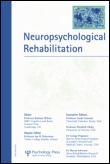
NEUROPSYCHOLOGICAL REHABILITATION
Advancing the Science of Cognitive RecoveryNEUROPSYCHOLOGICAL REHABILITATION is a prestigious peer-reviewed journal dedicated to the field of neuropsychology and rehabilitation. Published by Routledge Journals, Taylor & Francis Ltd, it stands at the forefront of research and development in applied psychology, arts and humanities, and rehabilitation, boasting an impressive impact factor and a distinguished ranking within various academic categories. With a strong commitment to advancing the science of rehabilitation and cognitive recovery, the journal aims to provide a platform for innovative research, systematic reviews, and clinical findings that inform best practices in the field. As it converges into its third decade of publication—from 1991 to 2024—NEUROPSYCHOLOGICAL REHABILITATION remains essential for researchers, clinicians, and students seeking cutting-edge insights and methodologies to enhance patient care and cognitive rehabilitation strategies.
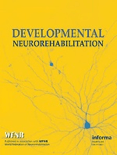
Developmental Neurorehabilitation
Fostering interdisciplinary dialogue in developmental care.Developmental Neurorehabilitation is an esteemed journal published by Taylor & Francis Inc, dedicated to advancing the field of developmental neuroscience and rehabilitation. With an ISSN of 1751-8423 and an E-ISSN of 1751-8431, this journal serves as a vital resource for researchers, clinicians, and students interested in innovative therapeutic approaches and rehabilitation techniques for children and adolescents. Since its inception in 1997, Developmental Neurorehabilitation has focused on disseminating high-quality research, contributing to a deeper understanding of recovery processes in developmental disorders, and facilitating interdisciplinary dialogue among professionals. With its recognition in Q2 and Q3 quartiles across prominent categories such as Pediatrics and Rehabilitation, it stands out as a pivotal publication in its field, boasting Scopus rankings that reflect its significant impact—ranked #53 in Rehabilitation and #139 in Pediatrics, among others. While maintaining a commitment to quality research, the journal does not currently offer open access but remains accessible through institutional subscriptions, further enriching the academic landscape with critical insights into rehabilitation methodologies for developmental challenges and promoting better clinical practices to improve patient outcomes.